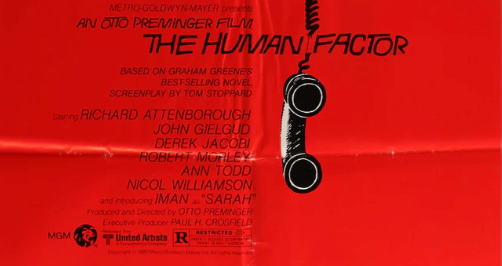Ring Ring: The Role of the Telephone in Film History

Ah, the humble telephone—a device that has undergone countless transformations over the years. From rotary dial to flip phone, and now to sleek smartphones, it's a piece of technology that's deeply woven into our daily lives. But if you think about it, the telephone has also been a significant character in the world of cinema. Let's take a trip down the proverbial telephone line and explore its role in film history.
Visit our Telephone collection
The Telephone as a Plot Catalyst
In classic films, the telephone often serves as a pivotal plot device. Think of those black-and-white noir movies where a simple phone call could change the course of the entire story. A cryptic message, a sudden hang-up, or a call from an anonymous tipster—all of these moments built suspense and kept audiences on the edge of their seats.
One of the most famous examples of a telephone driving a plot is Alfred Hitchcock's "Dial M for Murder." The entire premise revolves around a phone call that sets a diabolical plan into motion. Without the telephone, there'd be no suspense, no mystery, and certainly no twist ending.
The Telephone as a Connection to Reality
In many films, the telephone serves as a link between characters and the outside world. It's the tool that characters use to connect with each other and, by extension, the audience. Who can forget the iconic scene in "The Godfather" where Michael Corleone makes a crucial call from a phone booth? It's a moment that demonstrates both vulnerability and power, showing how a simple call can carry significant weight.
The Telephone in Horror Films
Horror films have a long-standing relationship with telephones. These seemingly ordinary devices become harbingers of doom, adding an eerie undertone to the story. Consider Wes Craven's "Scream," where the opening scene hinges on a menacing phone call. The simple question, "What's your favorite scary movie?" sends shivers down the spine, proving that sometimes the scariest threats come through the receiver.
The Evolution of the Telephone in Film
As technology has evolved, so too has the role of the telephone in film. Modern smartphones are not just communication devices; they are mini-computers, cameras, and gateways to the digital world. This has opened up new possibilities for storytelling, allowing filmmakers to explore the impact of constant connectivity on our lives.
Take "Her," for example, where Joaquin Phoenix's character falls in love with an AI assistant on his phone. It's a story that explores the emotional complexities of technology, showing that even a digital voice can evoke deep feelings. The telephone has come a long way from its analog roots, and its evolution continues to shape the way we tell stories on screen.
Final Thoughts
From classic noirs to modern thrillers, the telephone has been a constant presence in film. It's a tool that can build suspense, create connections, and even invoke terror. As technology continues to advance, we can expect to see even more creative uses of the telephone in cinema. So, the next time you watch a movie, pay attention to that ringing phone—it might just hold the key to the entire plot.